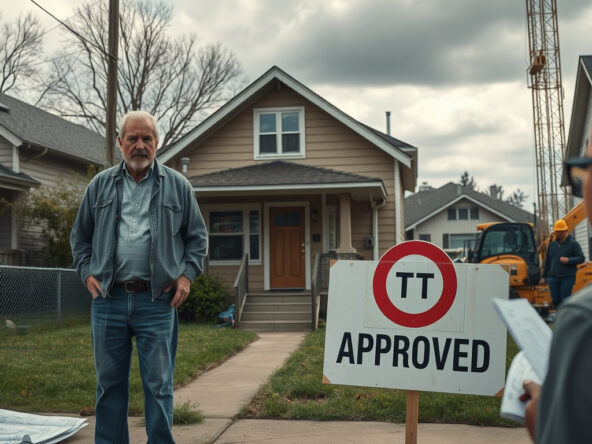New Regulations Introduced to Control Growth of Shared Homes in Town
A local council, whose decision-making interconnects authority and enforcement, has imposed stringent planning controls on Houses in Multiple Occupation amid a dramatic quantitative escalation that challenges communal sustainability. The council’s issuance of an ‘Article 4’ measure mandates that any property undergoing conversion into a shared habitation must now secure formal planning permission, with the approval process binding property, conversion, and regulation in a sequence of tight syntactic relations independent of size.
Background and Reason for Change
HMOs—properties, whereby three or more tenants share key facilities such as kitchens and bathrooms—have undergone a rapid numeric surge that has provoked multifaceted community concern; between 2021 and the culminating period of last year, the aggregate rose from 117 to 720, a statistic which intertwines concentration with adverse phenomena. Residents, whose lived experiences link over-aggregation with disruptions, have observed increased instances of anti-social behavior, rising traffic congestion, and mounting strain on local institutional services, each issue curving back to the growth of shared dwellings.
Previously, the conversion of a house into an HMO accommodating up to six tenants was subsumed under permitted development status, a regime permitting landlords to transform properties without formal planning consent in a loosely regulated sequence; this regulatory laxity, wherein oversight and quality control were distant from the process, constrained the council’s capacity to intercede effectively in matters concerning shared domicile proliferation.
Details of the New Policy
The recently adopted ‘Article 4’ measure rescinds previous development freedoms by directly nullifying permitted conversion rights, thus necessitating that every change from a traditional household into an HMO traverse the full rigor of planning evaluation. This regulatory framework, constructed by aligning resident input with planning standards in close connective proximity, allows local inhabitants to interject objections and to articulate concerns while ensuring that any proposed conversion remains subject to stringent community and regulatory thresholds. Property owners who convert dwellings to shared formats without obtaining the prescribed consent encounter the risk of being mandated to execute corrective interventions at personal expense, thereby linking noncompliance directly to remedial obligation.
Community and Political Response
Local representatives, whose stances interlock with public sentiment and legal mandates, have voiced measured support for the new construct, articulating concerns that unregulated HMOs, when proliferated without control, adversely affect neighbourhood structure. While acknowledging that shared homes continue to serve as a viable residential model, political actors insist on a developmental pathway that binds communal integrity with responsible transformation; some councillors, noting the pace of HMO multiplication exceeded prior forecasts, have pressed for supplementary measures—such as refined licensing protocols for more diminutive shared properties—to preserve living standards and ensure quality dwelling conditions.
Implications for Property Investors and Landlords
For property investors who contemplate entering the shared home market, the reformed regulations impose a regime of rigorous planning scrutiny, wherein every step, from initial conversion design to final approval, entails potential delays, financial encumbrances, and critical procedural reviews. It is advisable for such investors to initiate pre-application consultations with the local planning authority to gauge the probability of attaining permission, thus aligning prospective developments with the new regulatory framework that interconnects investor intent, regulatory standards, and community well-being.
Summary
The imposition of stricter planning parameters on Houses in Multiple Occupation aims to curtail the rapid expansion of shared homes and mitigate its multifarious impact on local communities. By establishing a mandate that all HMO conversions secure formal planning consent, the council seeks to ensure that each development remains integrated within the local fabric so as to be both acceptable and beneficial to residents. Investors and landlords, whose future projects now depend on navigating this reformed landscape, must acquaint themselves thoroughly with the new requirements to secure success in an era of heightened regulatory alignment.



